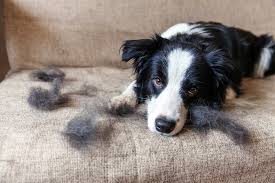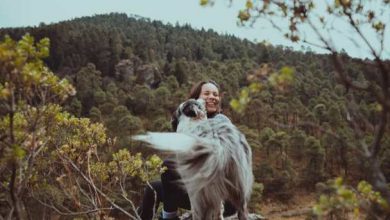Will Border Collie Hair Grow Back


Border Collies are known for their beautiful and distinctive coats, which often leave us mesmerized by their elegance. However, at times, you may notice your beloved Border Collie experiencing hair loss or thinning, which can be a cause for concern. If you find yourself wondering, “Will Border Collie hair grow back?” this article will provide you with the answers you seek.
Introduction
Definition of Border Collie
The Border Collie is a highly intelligent and energetic breed, renowned for their herding abilities. They are known for their medium-length double coats, consisting of a dense, weather-resistant topcoat and a soft, insulating undercoat. The coat’s texture and density can vary among individual Border Collies.
Importance of Coat for Border Collies
The coat of a Border Collie serves multiple essential functions. It protects them from various weather conditions, helps regulate body temperature, and provides insulation. Additionally, the coat acts as a barrier against external parasites and potentially harmful substances. Therefore, maintaining a healthy coat is crucial for the well-being of your Border Collie.
Understanding Border Collie Hair Growth Cycle
Hair Growth Cycle of Border Collies
To comprehend how hair growth works, it is important to understand the different stages of the hair growth cycle. The cycle consists of three main phases:
- Anagen Phase: This is the active growth phase, where hair follicles produce new hair. It typically lasts for several months to years, depending on the individual dog.
- Catagen Phase: In this transitional phase, hair follicles shrink and detach from the blood supply. This stage is relatively short, lasting only a few weeks.
- Telogen Phase: Known as the resting phase, the hair follicles remain dormant. After the telogen phase, the old hair is shed, making room for new hair growth.
Shedding in Border Collies
Like most dogs, Border Collies experience shedding as part of their natural hair growth cycle. Shedding is a normal process that allows the old and damaged hair to fall out, making way for new hair to grow. Shedding can be influenced by factors such as genetics, climate, and hormonal changes.
Factors Affecting Hair Growth in Border Collies
Several factors can influence hair growth in Border Collies. These include:
- Genetics: Each Border Collie inherits a unique genetic makeup that determines the characteristics of their coat, including hair growth patterns.
- Health Conditions: Certain health issues, such as hormonal imbalances, thyroid problems, and autoimmune diseases, can lead to hair loss in dogs. If your Border Collie is experiencing excessive hair loss or bald patches, it is essential to consult a veterinarian.
- Allergies and Skin Conditions: Allergies to food, environmental factors, or parasites can cause itching and lead to hair loss in Border Collies. Skin conditions like dermatitis or fungal infections can also affect hair growth.
- Stress and Anxiety: Just like humans, dogs can experience stress and anxiety, which may manifest in hair loss. Identifying and addressing the underlying causes of stress is crucial for your Border Collie’s well-being.
See also: Should You Trim the Hair Around Your Dog’s Eyes?
Promoting Hair Regrowth in Border Collies
Regular Grooming Practices
Maintaining a proper grooming routine is essential for promoting healthy hair growth in Border Collies. Regular brushing helps remove dead hair and stimulates blood flow to the hair follicles. It is important to use appropriate grooming tools, such as slicker brushes or grooming gloves, to avoid causing discomfort or damage to the coat.
Border Collies Balanced Diet and Nutrition
A well-balanced diet plays a significant role in maintaining a healthy coat in Border Collies. Ensure your dog’s diet includes high-quality proteins, essential fatty acids, vitamins, and minerals. Omega-3 fatty acids, in particular, are beneficial for skin and coat health. Consult your veterinarian for specific dietary recommendations tailored to your Border Collie’s needs.
Supplements for Hair Growth
Supplements can support hair growth in Border Collies by providing essential nutrients that may be lacking in their diet. Biotin, fish oil, and zinc are commonly recommended supplements for promoting healthy coat growth. However, it is crucial to consult with a veterinarian before introducing any supplements to your dog’s routine.
Veterinary Assistance
If your Border Collie experiences persistent hair loss or shows signs of discomfort, it is advisable to seek veterinary assistance. A veterinarian can diagnose any underlying health issues and provide appropriate treatment options to promote hair regrowth. They may conduct blood tests, skin scrapings, or other diagnostic procedures to determine the cause of the hair loss.
Prevention of Hair Loss in Border Collies
Proper Grooming Techniques
Preventing hair loss starts with proper grooming techniques. Regularly brush your Border Collie’s coat to remove dead hair and prevent matting. Additionally, be cautious when using grooming tools around sensitive areas, such as the ears and tail. If you are unsure about the best grooming practices for your Border Collie, consider consulting a professional groomer.
Maintaining a Healthy Diet of Border Collies
A nutritious and balanced diet is essential for overall health, including the coat. Ensure your Border Collie’s diet includes high-quality protein sources, fruits, vegetables, and whole grains. Avoid feeding excessive amounts of treats or table scraps, as they can disrupt the nutritional balance.
Managing Border Collies Stress and Anxiety
Stress and anxiety can contribute to hair loss in Border Collies. Providing a calm and stable environment for your dog is crucial. Engage in regular exercise, provide mental stimulation through interactive toys and games, and consider positive reinforcement training methods. If your Border Collie shows signs of anxiety, consult with a professional dog trainer or behaviorist.
Conclusion
In conclusion, Border Collies can experience hair loss due to various factors, including genetics, health conditions, allergies, and stress. While shedding is a natural part of their hair growth cycle, excessive hair loss or bald patches may indicate an underlying issue. By understanding the factors affecting hair growth and implementing proper grooming practices, a balanced diet, and veterinary assistance when necessary, you can support hair regrowth and maintain a healthy coat for your beloved Border Collie.
FAQs (Frequently Asked Questions) on Border Collies Hair Growth
How long does it take for Border Collie hair to grow back?
The time it takes for Border Collie hair to grow back can vary depending on the underlying cause of the hair loss. In general, hair regrowth can take several weeks to months. However, it is essential to consult with a veterinarian to determine the specific cause and obtain an accurate estimate of the regrowth timeline.
Can stress cause hair loss in Border Collies?
Yes, stress can contribute to hair loss in Border Collies. Just like humans, dogs can experience stress and anxiety, which may manifest in various ways, including hair loss. Identifying and addressing the underlying causes of stress is crucial for promoting hair regrowth and overall well-being.
Are there any home remedies to promote hair regrowth in Border Collies?
While there are several home remedies and natural remedies suggested for hair regrowth in dogs, it is important to consult with a veterinarian before trying any new treatments. The underlying cause of hair loss should be diagnosed accurately to ensure appropriate and effective treatment.
See also: Pet Hair Cutting: Tips, Tools, and Techniques for a Perfect Grooming
Can a poor diet affect the hair growth of Border Collies?
Yes, a poor diet can affect the hair growth of Border Collies. Proper nutrition is vital for maintaining a healthy coat. Ensure your Border Collie’s diet includes high-quality proteins, essential fatty acids, vitamins, and minerals to support optimal hair growth and overall well-being.
When should I seek veterinary assistance for my Border Collie’s hair loss?
If your Border Collie experiences excessive hair loss, bald patches, persistent itching, or shows signs of discomfort, it is advisable to seek veterinary assistance. A veterinarian can evaluate your dog’s condition, conduct necessary tests, and provide appropriate treatment options to promote hair regrowth and address any underlying health issues.



